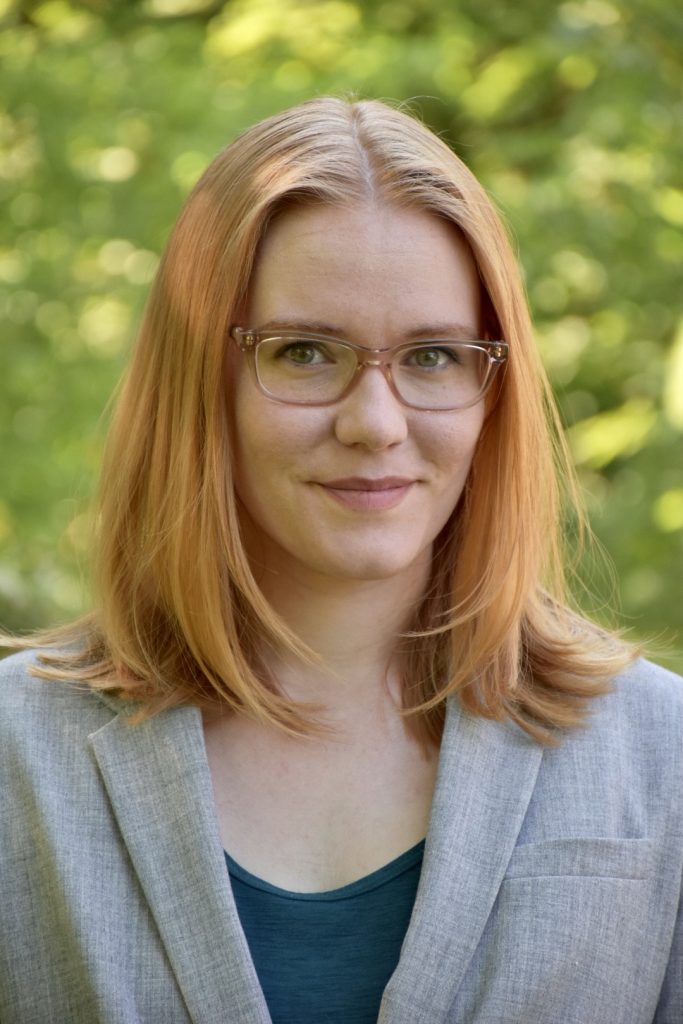Isabel Krome joined the Temple Small Business Development Center (SBDC) in 2021 and brings more than eight years of small business development experience. Her work has been wide-ranging, including business model planning, market research, business formalization, identifying and diversifying revenue streams, accessing capital, strategic planning, diversity certifications and more. Krome is particularly passionate about supporting female and LGBTQIA+ business owners and has helped to launch and grow many businesses over the years, including professional service providers, creative professionals, daycares, cleaning companies and eCommerce businesses.
The Temple SBDC editorial team caught up with Krome to learn more about her professional background and her perspective on the importance of SBDC.
What aspect of your work do you think makes the biggest impact?
That’s a tough one! There are so many kinds of impact, aren’t there? My focus is mainly start-ups, so there’s the technical guidance that I provide around business planning and formalization that helps people transform their entrepreneurial vision into a revenue-generating, tax-compliant reality—and that work is really cool. That said, I think the bigger impact of working with a business consultant comes in your first six to 18 months when it can really make a difference to have someone in your corner to give you an experienced outside perspective on your business’s unique situation. I remember a client who was having some cash flow issues in their first year of business. We were able to get right into the nitty-gritty analysis because I was familiar with the background from the planning process. We identified two different tactics to address the situation, including being more proactive in collecting on accounts receivable and reducing some overhead costs. This isn’t rocket science—spend less money, collect what you’re owed—and the client knew it, but figuring out where to spend less and how to get paid faster wasn’t as simple as it sounds. Having someone to call when you hit a road bump who knows your business and can help you do the research and analysis you need is huge!
How is the SBDC able to offer consulting services free of charge?
Right? This is too good to be free! It’s true, though. The SBDC receives grant funding specifically to provide technical assistance to business owners, which means that business owners get the benefit of expert assistance for free, but the experts themselves can be compensated fairly. There are lots of other benefits of this grant funding, as well. It means that the SBDC has access to a TON of resources, templates, research tools and subject matter experts from across a statewide and nationwide network. All the staff is held to high standards of ethics, confidentiality and professionalism. I know “free” is a hard deal to beat, but “free, qualified, connected, and confidential” is second to none.
How has COVID-19 affected the SBDC’s ability to assist clients?
I am a recent addition to the SBDC team, so I can’t speak to what it was like before, but I know that when I first made the jump to working remotely with clients, I expected it to be challenging. Maybe it is easier to build a good working relationship in person, but once I’m working with a client, it feels super similar. We’re all video call experts now. It’s also forced everyone to think on their feet, make adjustments and be flexible, which is good practice in general. The SBDC also has a healthy stream of topical and information-packed webinars and has grown its team of business consultants like me who meet with clients remotely. In a sense, the pandemic has made us become even more accessible to clients who might be too busy to commute in person to a class or appointment.
How do you feel COVID-19 impacts the need for Temple’s Small Business Development Center?
In my experience, the need is so much greater now than it was pre-COVID. Many people turned to entrepreneurship during the pandemic, whether for economic reasons or because they saw a new opportunity in the upheaval, so there are new faces out there who could benefit from SBDC services to plan and launch. Plus, existing businesses look to the SBDC for support accessing relief funds or for the excellent educational programing I just mentioned. So many businesses in so many industries are still facing COVID-19’s impact in supply chains issues, labor shortages and unpredictable market demand, and Temple SBDC can help businesses be resilient and resourceful during whatever the coming months will bring.
What challenges do you think the SBDC is best able to help aspiring entrepreneurs solve?
The SBDC excels at helping entrepreneurs tackle the challenge of funding, which is always top of mind for aspiring entrepreneurs and can be thorny when clients aren’t an ideal candidate for traditional funding sources like bank loans. We’ll help you plan when and how to access external sources of capital for your business and strategize for the most effective use of your existing funds.
Another challenge that planning-stage entrepreneurs sometimes face is centering the customer. It’s natural to be passionate and excited about the product or service that the business proposes to sell; after all, that’s usually the reason somebody wants to go into business for themselves in the first place. But if you don’t understand who your target customer is, and more importantly, what their needs are and how they’re currently trying to meet those needs, you could spend valuable marketing resources trying to sell people stuff they don’t want. A consultant can help you spot when you may need a little more clarity on your customer, and the SBDC provides in-depth market research and marketing support to make sure you not only understand your customer but that you reach them.
